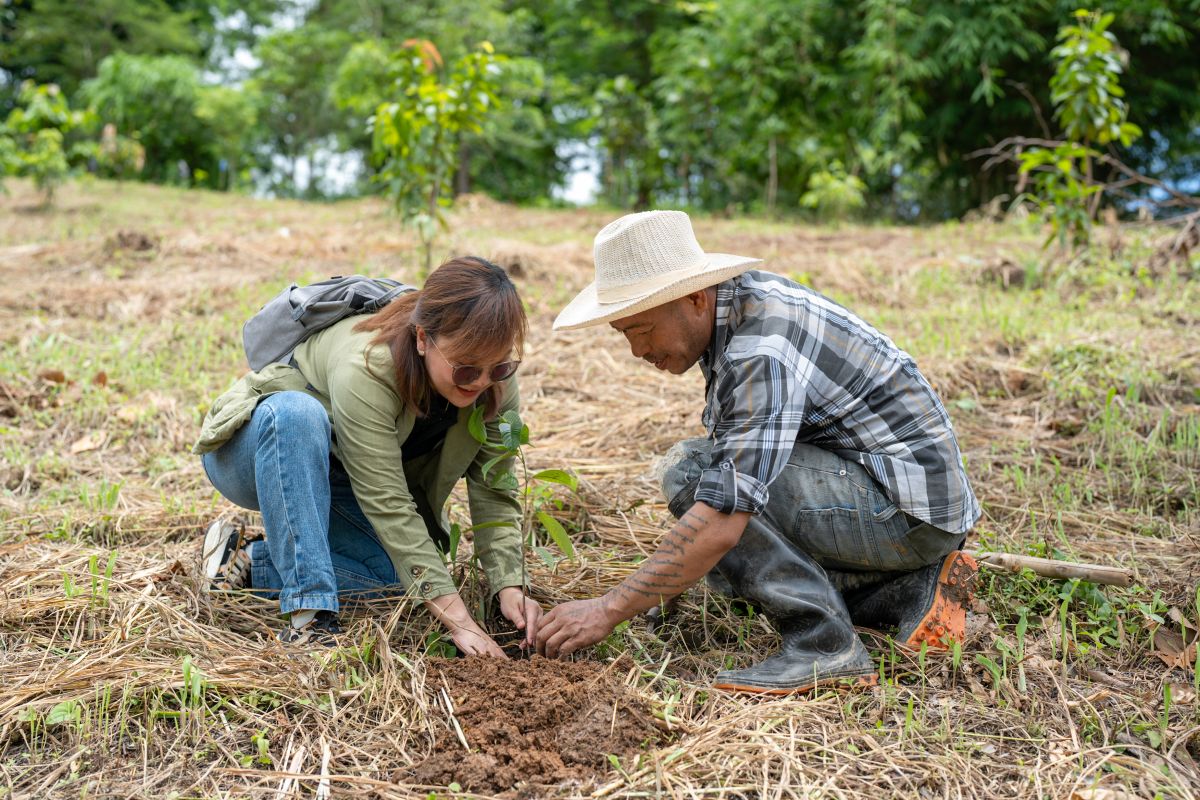

Close to 100 farmers in Thailand’s Nan province are engaged in helping convert monoculture agricultural land into diversified agroforestry models, one tree sapling at a time. From February 2022 to November 2023, 97 farmers signed up to receive monetary support to plant trees on their land, and nurture and monitor their growth. Over this period, more than 12,000 trees have been planted and are being monitored, with around USD 35,000 raised to support these efforts.
 RECOFTC is working through our Trees4All project to facilitate this restoration, which is backed by a crowdfunding campaign. From January to November 2023, this campaign raised USD 21,600 through direct contributions from over 700 individuals and five business groups. Farmer sign-up rates increased significantly last year, with 64 farmers committing to planting and monitoring 8,332 trees in the Nan River watershed area.
RECOFTC is working through our Trees4All project to facilitate this restoration, which is backed by a crowdfunding campaign. From January to November 2023, this campaign raised USD 21,600 through direct contributions from over 700 individuals and five business groups. Farmer sign-up rates increased significantly last year, with 64 farmers committing to planting and monitoring 8,332 trees in the Nan River watershed area.
page break
spacing
The project is on track to meet its fundraising goal of USD 60,000 by the end of 2024. Key to this success has been growing public awareness that they can contribute to forest landscape and biodiversity restoration by supporting farmers through sponsorships of individual trees.
Our marketing strategy for the campaign was co-developed with the Bangkok-based ChangeFusion Institute and Taejai.com. In January 2023, we teamed up with members of a local development network in Nan, the Rak Santisuk Group, to set up a community-based enterprise that now facilitates liaison with participating farmers and supports tree monitoring and management of all Trees4All finance. The enterprise received approval from Thailand’s Department of Agricultural Extension in June 2023.
With direct financial and appropriate technical support, farmers in Nan are helping improve their ecosystems and contributing to global action on climate change. The Trees4All model shows that people and companies in downstream areas are willing to pay to protect watersheds. Experiences and lessons learned from Nan could be replicated elsewhere in Thailand and scaled out to the Asia-Pacific region.
